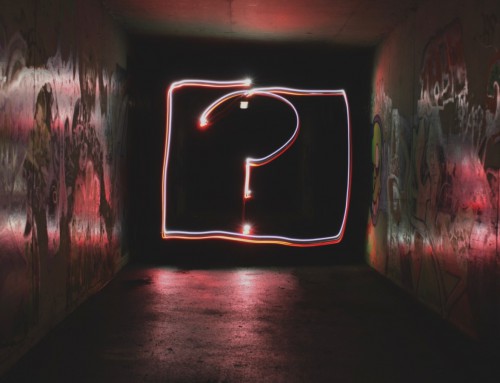Life isn’t perfect. Despite how much we might try, we aren’t perfect people, either. We make mistakes, accidents happen, and things don’t go our way. But how do you handle this? Many of us will have a tendency to blame others when things go wrong.
“I wouldn’t have crashed my car if you hadn’t been distracting me with your phone.”
“I’m late because my husband couldn’t find his wallet.”
“I sometimes treat you badly because my ex really hurt me.”
Any of these sound familiar?
As humans, we love to rid ourselves of responsibility and blame. As a result, we find ourselves playing the blame game with others. Everything unpleasant that happens to us becomes someone else’s fault. We point the finger, our conscience stays clear, and we move on to make the same mistakes over and over again.
Shifting responsibility and blame
One of our favourite things to do is blame and be right. Something bad happened to you, but instead of owning up to the part you might have played in the situation, you make a scapegoat out of someone else.
There is actually no such thing as right and wrong. The concepts of ‘right’ and ‘wrong’ have become a way of handling and compartmentalising situations and experiences. We know what’s right. We know what’s wrong. And we, as individuals, always need to be right. Even if this is at the expense of making someone else wrong.
But these words are accompanied by a sense of shame, fear, righteousness, and plenty of other unpleasant feelings. When labelling yourself or others as right or wrong, you’re suggesting that one of you is better than the other. And, as a result, people take a defensive position.
No one wants to be wrong. But each individual needs to be right in their own minds. Do you see why this doesn’t add up?
Cause and effect
Similar to blame is our habit of needing to identify cause and effect. After all, everything becomes easier to handle when we can align them with a cause. Especially one that’s external to us.
It’s much nicer to say “I feel hurt because you did X, Y, and Z” rather than just dealing with the emotion. Finding causes that are outside of ourselves is a defence mechanism. It’s a way of avoiding looking internally and recognising the parts of ourselves that we don’t like. The parts of ourselves that are toxic, harmful, or negative.
Instead, we love to play the victim, shift the blame onto someone else, and wallow in our pity and sadness as an innocent victim.
It takes two to tango
We assign blame and fault as a way to ignore, justify, or excuse the roles we play in our own circumstances. But life isn’t that black and white.
There will be a whole host of factors that contribute to a certain event. A mix of both internal and external factors. Yes, your husband couldn’t find his wallet this morning and you were late to work. But weren’t you also already running a few minutes behind? Didn’t you also stop and get your usual morning coffee en route?
We’re active participants in our own lives. And we need to take responsibility for our own actions and mistakes. In most instances, you’ll have played a part – no matter how seemingly small or insignificant.
And acknowledging the mistakes we’ve made or the ways we’ve contributed is how we learn and grow. It’s how we develop ourselves and our awareness to do better next time.
Working versus not working
Instead of pointing the finger and blaming someone for being wrong, try to approach confrontation from a different perspective.
Talk about what works and what doesn’t work. Identifying this puts you on the same team, looking for a resolution. Think about how this situation was unworkable and come together to find a compromise that suits you both.
When it comes to placing blame, all you can do is learn to catch yourself. To recognise when you slip into these ways of thinking and make a conscious effort to approach situations with a level head.
If you crash your car, instead of blaming the other driver, take responsibility for the role you also played. Get out of the habit of making it about them being wrong and you being right. Reframe the event as a learning experience and something to improve from.
I’m sure we can all remember times where we blamed others for situations that weren’t their fault. Times where it was easier to put all the blame on an external cause than it was to admit that we also had a part to play. But by bringing greater awareness and understanding into your thinking, actions, and behaviours, you can slowly start to reverse these habits and tendencies.




